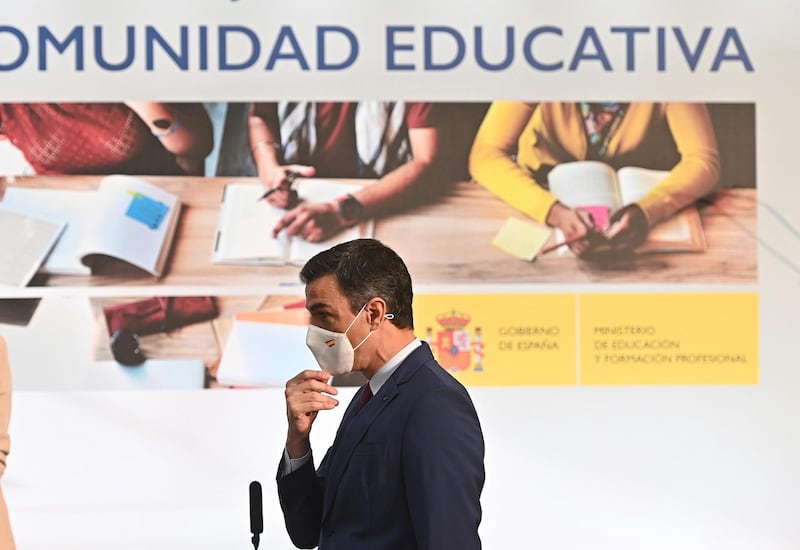Spain is planning an education revolution as part of a multi-billion-euro plan to raise standards and improve the lives of its citizens.
Authorities want to see the country shake off historically poor performances in the Programme for International Student Assessment and rise through its rankings.
Ambitious targets were laid out in health care, social services and the environment as Prime Minister Pedro Sanchez outlined his Espana 2050 vision.
He said education was the country's biggest challenge as demographic changes have reduced the number of students aged between three and 15.
Mr Sanchez said he wanted to increase spending per student from the current €4,880 ($5,825) to €9,640 by 2050.
One of Espana 2050's goals is a 20 per cent increase in graduates with a degree higher than a secondary school diploma.
Spain currently leads European school dropout rates at 17 per cent, compared with the EU average of 10 per cent, and the government wants to reduce that to 3 per cent.
For Pisa results, Mr Sanchez said he wants to increase performance by 20 points, bringing the country in line with Europe's average of 500 points.
Espana 2050 is a 675-page vision of far-reaching plans for life in Spain over the next 30 years, drawn up after consultation with more than 100 experts, and Mr Sanchez wants others to weigh in.
The prime minister urged “a great national dialogue on the future of Spain”.
On the environment, Espana 2050 calls for emissions cuts and green taxes, including a frequent flyer levy.
Changes to consumer habits, including eating less animal protein and reducing waste from clothing and mobile phones, are among the ambitions.
"This reduction in certain types of consumption will not lead to worse living conditions or less well-being for citizens," the report said.
The report calls for a 1.3 per cent increase in health spending to push through "deep institutional changes".
As one third Spain's population will be over 65 by 2050, the report suggests raising the retirement age, especially as people will likely be living longer.
Efforts will be made to increase the amount of women and people over 55 in work.
The report suggests curbing the flow of people from countryside to city by taking advantage of digitalisation.








